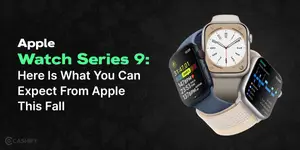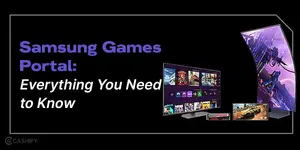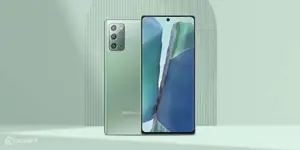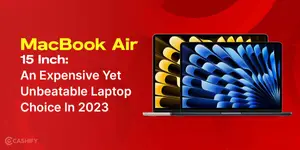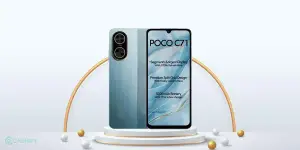The era of foldable technology has been nothing short of revolutionary, transforming the way we interact with our devices. In a world cluttered with smartphones and tablets, the introduction of foldable options adds a new dimension, offering the convenience of two devices in one. Our focus here is to delve deeper into understanding: are foldable tablets better than foldable phone?
Brands like Samsung, OnePlus, Moto, and Xiaomi are leading the foldable phone race, with even laptops being eyed as the next frontier in flexible screens. Yet, when it comes to foldable tablets, the options are significantly fewer, led primarily by Lenovo.
Unfolding the Revolution
Samsung, the Korean tech giant, has been a trailblazer in the foldable phone market. Their Galaxy Z Fold series has set new standards, and it’s no surprise that the company is contemplating taking this technology beyond phones. According to the company’s head of mobile, Samsung is looking at expanding the flexible screen concept to tablets and laptops, broadening the horizons of foldable tech. Imagine a scenario where your tablet unfolds into a laptop, or your phone expands into a tablet. The possibilities are vast and incredibly tantalizing.
Also read: Are Foldable Phones The Next Big Change In Mobile Industry?
However, it’s worth noting that Samsung is not alone in the foldable smartphone arena. There’s a race heating up with various players like OPPO, Vivo, Xiaomi, Honor, Moto, and now OnePlus, each bringing their own foldable devices with unique selling points. OnePlus, for instance, has already made waves by announcing the launch of its foldable phone, OnePlus Open, with aggressive pricing to challenge market leaders.
Limited Market for Foldable Tablets
While the foldable phone market is becoming increasingly crowded, the foldable tablet segment tells a different story. Lenovo is currently the top player with its ThinkPad X1 Fold, a device that marries the tablet experience with PC-level performance. However, beyond Lenovo, the options are few and far between, making it a rather niche market.
Also read: 5 Best Foldable Phones To Buy Today October 2023!
The lack of competition in foldable tablets could be attributed to the relatively smaller demand. Tablets have a more specialised usage, commonly used for work-related tasks or media consumption that benefits from a larger screen. Foldable phones, on the other hand, offer a compelling duality; they serve as both your everyday phone and a mini-tablet. It’s this dual-purpose functionality that makes them attractive to a broader consumer base.
The Form Factor Face-off
Foldable Phones
- Portability: These are devices that can slip into your pocket but expand to provide a sizable touchscreen when needed.
- Functionality: They offer the convenience of a phone and a tablet, ideal for multitasking.
Foldable Tablets
- Screen Real Estate: These devices offer more screen space, which is a boon for professionals in fields like graphic design or video editing.
- Battery Life: Generally, foldable tablets can accommodate larger batteries due to their size, offering longer usage times.
User Experience and Versatility of Foldable Tablets
In terms of user experience, foldable phones seem to be winning the race, mainly because they are easier to integrate into daily life. These devices are great for browsing social networking and even offer enough screen space for efficient multitasking. However, when it comes to specialised tasks that require a larger display, like CAD design, digital art creation, or video editing, a foldable tablet takes the lead. They offer the versatility of a laptop without the bulk, making them highly practical for professionals.
Cost Concerns
Foldable technology doesn’t come cheap. The cost of R&D, the new-age materials used, and the overall production complexity contribute to a higher retail price. Foldable phones are generally less expensive than foldable tablets, but they do compromise on some features like battery life and sometimes performance. Tablets, on the other hand, offer a higher performance package but at a higher cost, making it a significant investment.
The Necessity of Foldable Technology
But why are foldable devices gaining traction in the first place? What is driving manufacturers to invest heavily in this technology, and why are consumers increasingly captivated by these futuristic gadgets? To understand this, we must look at the needs and demands of modern life.
Also read: iPhone Fold: Everything We Know So Far
A Response to Modern Lifestyles
Our lifestyles have become increasingly mobile and fast-paced, with a premium placed on convenience and multi-functionality. The days of carrying multiple devices for different purposes are fading fast. Whether it’s business professionals shuttling between meetings, students switching from e-books to video lectures, or digital artists requiring a canvas that adapts to their creative whims, there is a growing need for a single device that can do it all. Foldable technology answers this need by offering dynamic form factors and adaptable user interfaces, making it easier to switch between tasks and roles effortlessly.
Also read: Leaked: Google Pixel Foldable Variant
The Sustainability Aspect of Foldable Tablets
Another angle to consider is sustainability. The tech industry is often criticised for contributing to electronic waste and promoting a throwaway culture. Foldable devices, particularly phones, offer a two-in-one solution, potentially reducing the number of gadgets one needs to own and eventually discard. While not a comprehensive solution to the e-waste problem, it’s a step toward more sustainable technology consumption.
Summary: Are Foldable Tablets Better Than Foldable Phone
As technology advances, it’s likely that we’ll see more players entering the foldable tablet market. For now, it remains a more specialised product targeting a specific user base, unlike foldable phones that cater to a broader audience. Whether you should opt for a foldable phone or a foldable tablet depends on what you prioritise more: the convenience of a two-in-one device or the specialized capabilities of a larger foldable screen.
In conclusion, the foldable device you choose will largely depend on your lifestyle and specific needs. If portability with dual functionality appeals to you, then foldable phones are your go-to gadgets. But if you’re a professional who needs a larger screen for specialised tasks, then a foldable tablet would be more suited to your needs. As more players like Samsung explore expanding foldable technology beyond phones, we can only expect the landscape to become more exciting and versatile.
Easily convert your old smartphone into cash with Cashify. Declutter and get top prices for your outdated tech. You can even buy refurbished mobile phone at the best prices from the comforts of your home.


